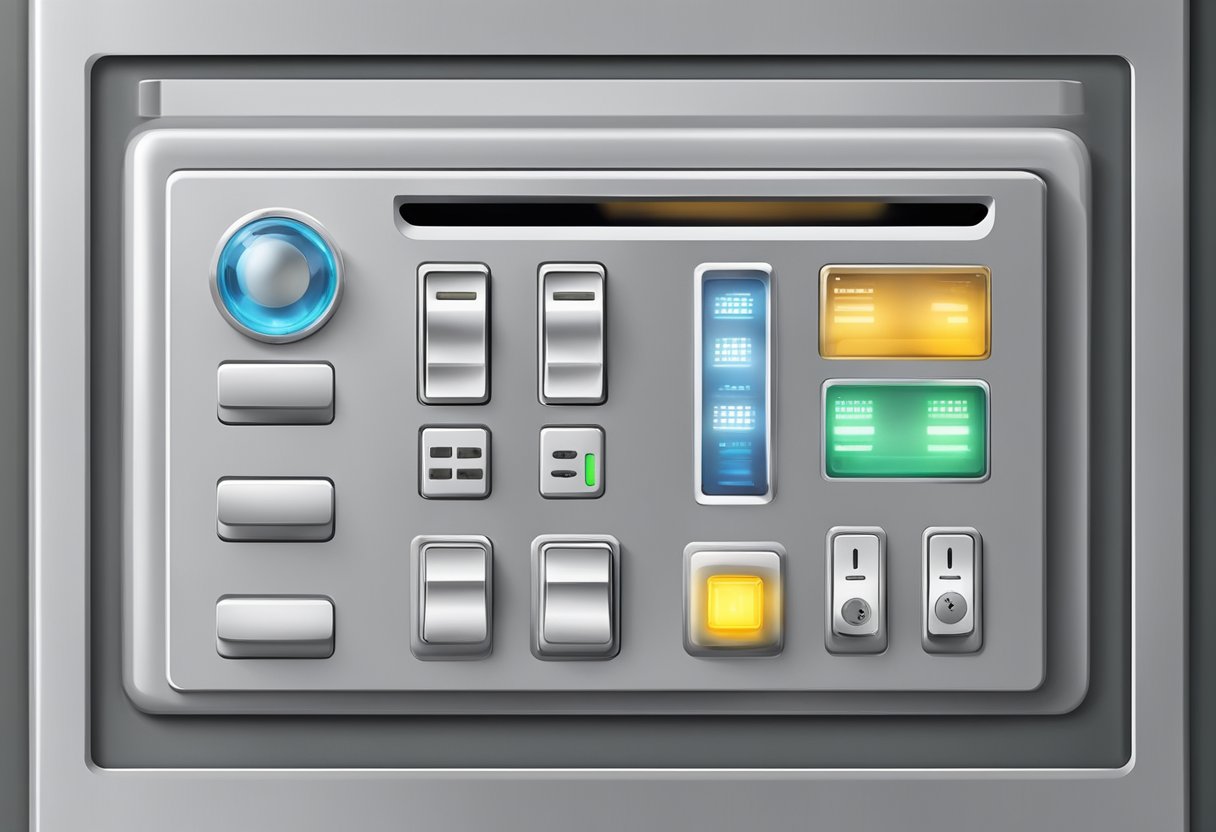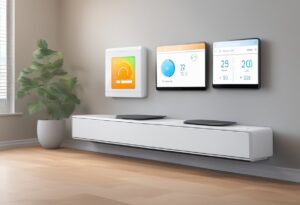Home security systems are becoming increasingly popular as people look for ways to protect their homes and families. However, there are many myths and misconceptions surrounding these systems that can make it difficult to determine the truth about them.
Decoding Home Security Systems
Home security systems can be complex and confusing, with many different components and features to consider.
It is important to understand how these systems work and what they can do to protect your home.
From motion sensors and door alarms to surveillance cameras and smart locks, there are many different types of home security systems available.
Each system has its own unique features and benefits, so it is important to carefully evaluate your needs and choose the system that is right for you.
Installation and Monitoring
Installing a home security system can be a daunting task, but it is important to ensure that your system is installed correctly to ensure maximum effectiveness.
Many home security companies offer professional installation services, which can be a good option for those who are not comfortable with DIY installation.
Additionally, it is important to choose a system that offers reliable monitoring services to ensure that your home is protected around the clock.
Key Takeaways
- Home security systems can be complex, with many different components and features to consider.
- Professional installation and reliable monitoring are important factors to consider when choosing a home security system.
- It is important to carefully evaluate your needs and choose the system that is right for you.
Decoding Home Security Systems
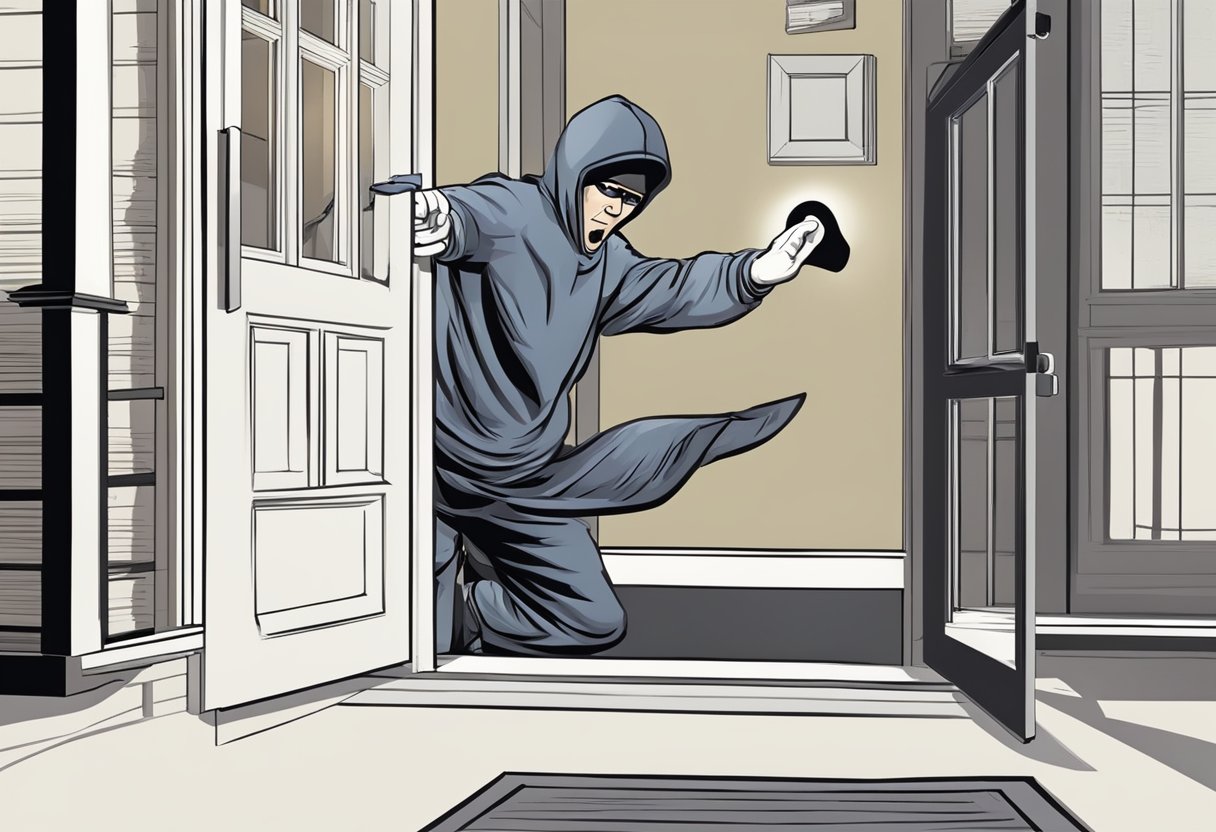
Home security systems have become a necessity in today’s world, where crime rates are increasing day by day. With the advancement in technology, home security systems have become more affordable and user-friendly.
In this section, we will decode the basics of home security systems, types of systems, and their components.
Understanding the Basics
Home security systems are designed to protect your home from burglars, intruders, and other potential threats.
A typical home security system consists of a control panel, keypad, sensors, cameras, motion detectors, and alarms.
The control panel is the brain of the system, which communicates with all the components and sends alerts to the monitoring center.
The keypad is used to arm and disarm the system, and the sensors detect any unusual activity.
Types of Home Security Systems
There are two types of home security systems: wired and wireless.
Wired security systems are hardwired into your home’s electrical system, making them more reliable and secure. However, they are more expensive to install and require professional installation.
On the other hand, wireless systems are easy to install and can be set up by anyone. They are also more flexible and can be customized according to your needs.
Components of a System
A typical home security system consists of several components, including sensors, cameras, motion detectors, and alarms.
Sensors are placed on doors and windows and detect any unusual activity.
Cameras are used to monitor your home and record any suspicious activity.
Motion detectors are used to detect any movement in your home, and alarms are used to alert you and the monitoring center of any potential threats.
Installation and Monitoring
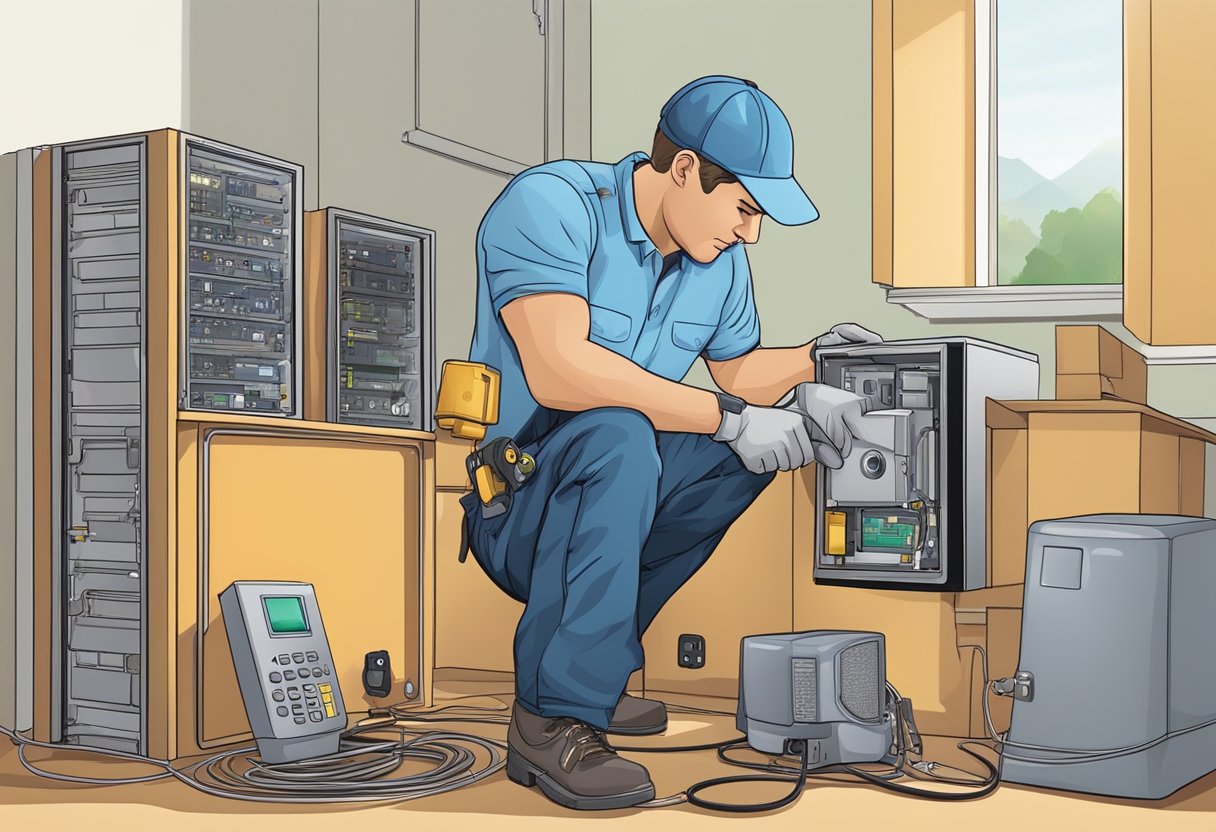
DIY vs. Professional Installation
One of the first decisions to make when installing a home security system is whether to go the DIY route or hire a professional installation service.
DIY installation may be more cost-effective, but it requires more effort and time.
It involves setting up the system yourself, which includes mounting sensors, cameras, and other equipment.
DIY home security systems are often wireless and can be controlled through a central hub or smartphone. However, it may be challenging to install for those who are not tech-savvy.
On the other hand, professional installation services offer convenience and expertise.
A professional installer can ensure that the system is installed correctly and optimize its performance.
Professional installation services can be costly, but they can save time and ensure that the system is functioning correctly.
Monitoring Services Explained
The monitoring service is a critical aspect of a home security system. It is responsible for monitoring the sensors and cameras and alerting the homeowner or the authorities in case of an emergency.
There are two types of monitoring services: self-monitoring and professional monitoring.
Self-monitoring is when the homeowner monitors the system themselves. The homeowner receives alerts on their smartphone or other devices when the system detects something unusual.
Self-monitoring can be more affordable, but it requires the homeowner to be vigilant and responsive. It may not be ideal for those who are not always available to monitor the system.
Professional monitoring services are provided by a third-party company that monitors the system around the clock.
If the system detects something unusual, the monitoring center alerts the homeowner and the authorities.
Professional monitoring services can be more reliable, but they can be more expensive.
Costs and Budgeting
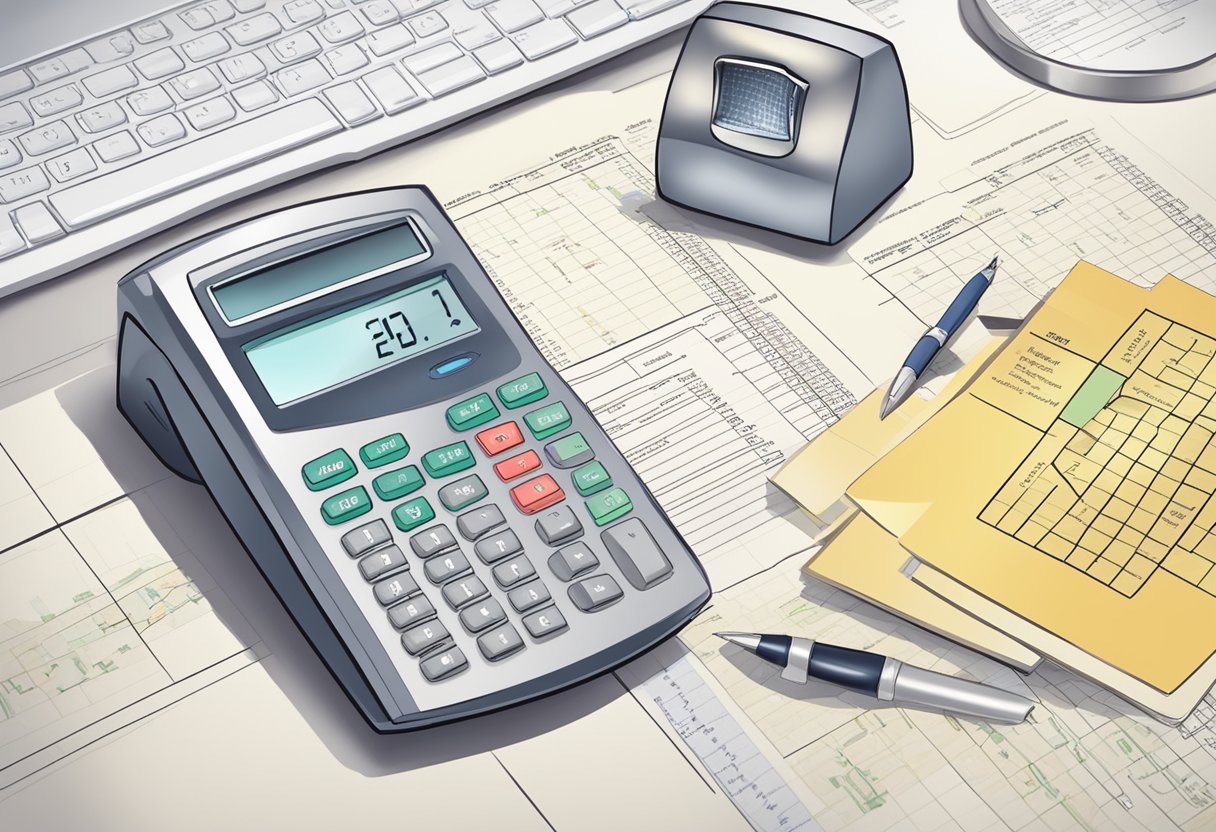
Understanding the Pricing
The cost of a home security system can vary depending on the type of system, equipment, and the level of monitoring.
According to Forbes, the average cost to install a home security system is $600. However, basic packages can be as low as $200 and have the option for DIY installation. Additional costs can include an installation fee and monthly monitoring fees.
Homeowners should consider the type of equipment they need for their home security system.
Basic systems typically include a control panel, door and window sensors, and an alarm. The cost of a basic system can range from around $200 to $500, depending on the brand and the number of sensors needed.
More advanced systems may include cameras, motion detectors, and smart home integration, which can increase the cost.
Budget-Friendly Options
For those on a tight budget, there are affordable home security options available.
According to Mag Security, budget security systems may have hidden costs such as installation fees, monitoring charges, maintenance costs, false alarm penalties, compatibility issues, limited features, training fees, insurance implications, reliability concerns, and hidden add-ons.
Homeowners should research and compare different systems to find the best fit for their budget and needs.
DIY installation can also be a budget-friendly option for homeowners. Many home security companies offer DIY systems that can be easily installed without professional help. However, it is important to ensure that the system is installed correctly to avoid any security risks.
Safety, Privacy, and Effectiveness
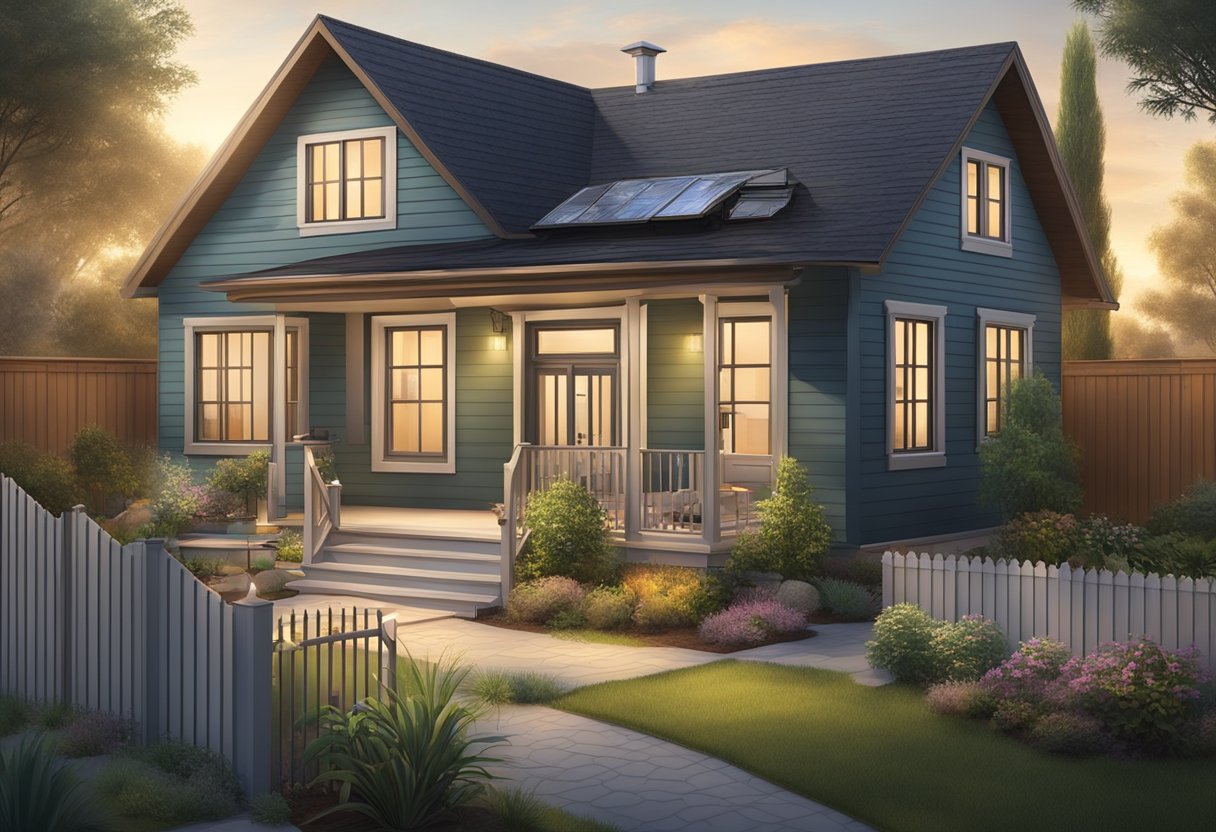
Enhancing Home Safety
Home security systems are designed to enhance home safety. They provide protection against unauthorized entry, burglaries, and fires.
With a home security system in place, homeowners can have peace of mind knowing that their property is being monitored and protected.
The system can also be integrated with other safety devices such as smoke detectors and carbon monoxide detectors to provide comprehensive protection to the home.
Privacy Concerns
While home security systems provide enhanced safety, they can also raise privacy concerns.
Homeowners can feel uneasy about the idea of being monitored 24/7.
It is important to find a system that is designed with privacy in mind.
For example, some systems have privacy settings that allow homeowners to turn off the cameras when they are at home.
Additionally, homeowners should choose a system that is password protected and has secure data encryption to prevent unauthorized access to the system.
Evaluating Effectiveness
One of the most important aspects of a home security system is its effectiveness.
Homeowners want to know that their system will prevent burglaries and provide early detection of fires.
It is important to choose a system that has a proven track record of preventing burglaries and false alarms.
Homeowners should also consider the responsiveness of the monitoring center and the quality of the customer service provided by the security company.
Myths and Misconceptions
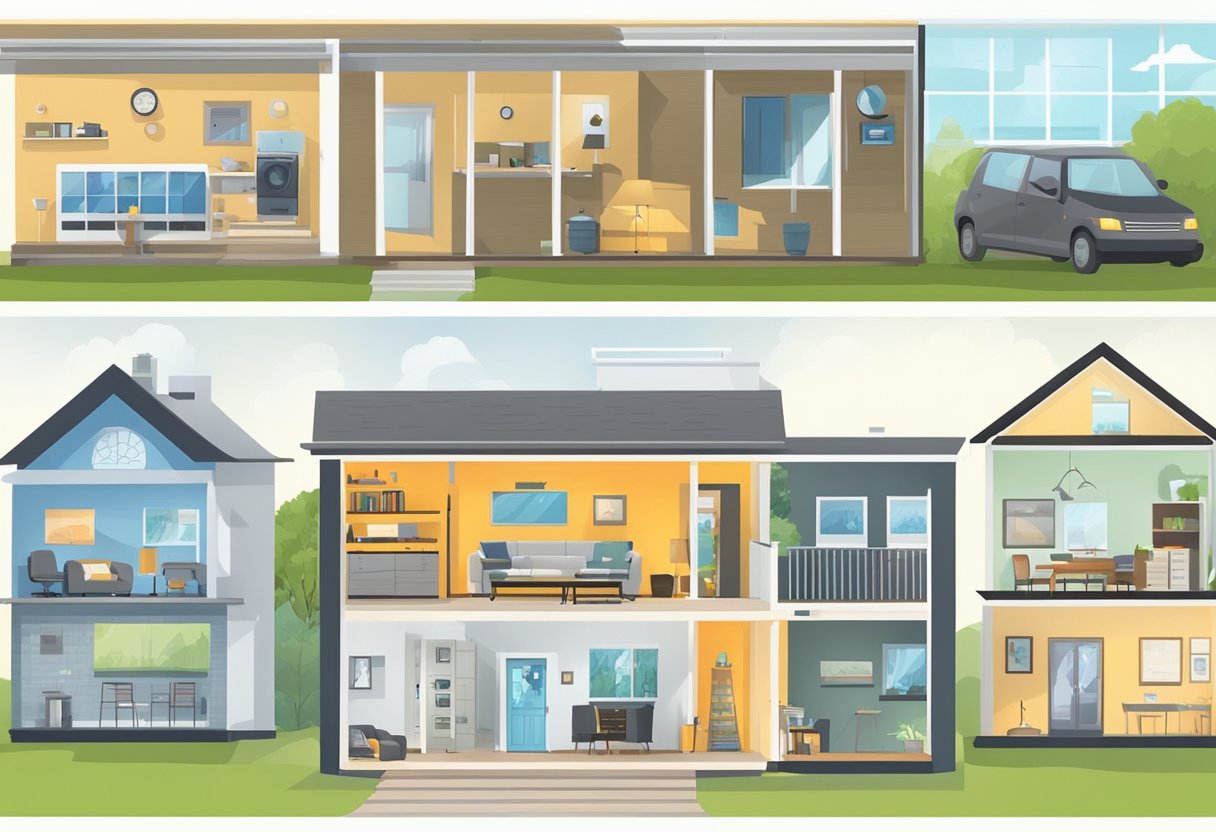
Common Myths Debunked
There are several myths and misconceptions surrounding home security systems that can deter homeowners from making informed decisions.
One of the most common myths is that home security systems are only for the wealthy. However, this is no longer the case.
Today, the market offers a wide range of options tailored to different budgets. From basic DIY kits that include a few sensors and a camera, to sophisticated, professionally monitored systems with advanced features, there is something for everyone.
Another common myth is that alarms and security company signs are enough to deter burglars. While these can be effective, they are not foolproof.
Burglars can easily spot fake signs or outdated systems and still proceed with their break-in. It is important to have a comprehensive security system that includes cameras, motion sensors, and other features to ensure maximum protection.
The Reality of Home Security
The reality of home security is that it is a necessary investment for homeowners. A security system can provide peace of mind and protect your family and belongings from potential threats.
In fact, according to the National Council for Home Safety and Security, homes without security systems are 300% more likely to be broken into.
While guard dogs can be a great addition to your home security system, they should not be relied upon as the sole means of protection. Dogs can be distracted or even harmed during an emergency, and may not be able to call for help or alert authorities in case of a break-in or fire.
It is important to remember that emergencies can happen at any time, and having a comprehensive security system in place can provide the necessary protection and peace of mind.

